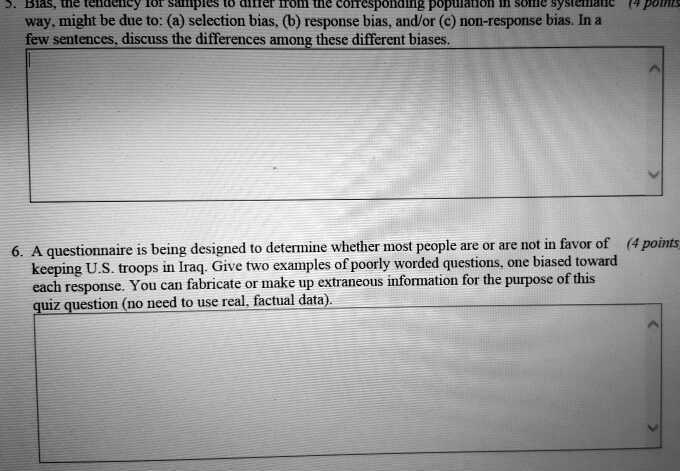
Solution:
5)
(a) Selection bias means the samples are not properly selected, leading to systematic bias. For example, using mother goes pickup their children after school, if we select people by picking parent who go to pick up kids, we might turn out bias towards woman's view.
(b) Response bias means the answer are impacted not just by the question alone, but by other factors. For example, a black person is conducting a survey, and one question ask your opinion about black people, you are most likely to give answer that favor black people anyway despite what you think.
(c) Non response bias is simply the participant refuse to answer the question. In most cases, the people who do not response actually have strong opinion and expressing that as not responding, that can lead to bias too. Voting is a great case for this. If we do not want to researcher to know who will we vote, we will refuse to response to the survey and do the voting to surprise the researcher.
6)
Question bias towards keeping.
Do you think U.S. should responsibly keep the troops at Iraq?
The question implies leaving as not responsible, so a sensible responder would say yes.
Question bias towards leaving.
Do you think U.S. should be done with keep the troops at Iraq?
The question implies U.S. has stay there for long and should be done with it.
No comments:
Post a Comment